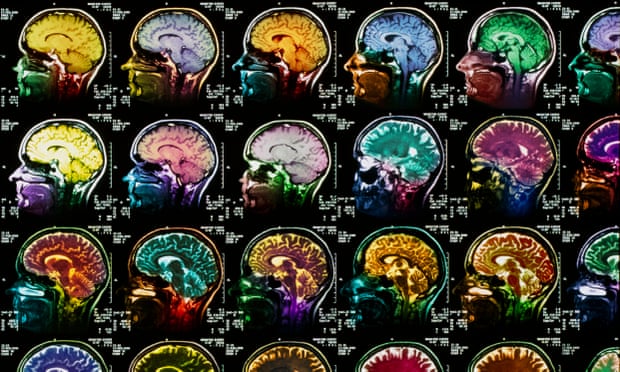| Manu | Date: Sunday, 07-May-2017, 3:55 AM | Message # 1 |

--dragon lord--
Group: undead
Messages: 13927
Status: Offline
| Experts say findings are ‘astounding’ and could help understand the purpose of dreams and predict whether people are dreaming

Coloured sagittal MRI scans of the human brain. Changes in brain activity offer clues to what the dream is about. Photograph: Simon Frazer/SPL/Getty Images
Scientists have unpicked the regions of the brain involved in dreaming, in a study with significant implications for our understanding of the purpose of dreams and of consciousness itself. What’s more, changes in brain activity have been found to offer clues as to what the dream is about.
Dreaming had long been thought to occur largely during rapid eye-movement (REM) sleep, a period of slumber involving fast brain activity similar to that when awake, but dreams have also been reported to occur during non-REM sleep, leaving scientists scratching their heads as to the hallmark of dreaming.
“It seemed a mystery that you can have both dreaming and the absence of dreaming in these two different types of stages,” said Francesca Siclari, co-author of the research from the University of Wisconsin-Madison in the US.
Now it seems the puzzle has been solved.
In addition the team found that dreaming about faces was linked to increased high-frequency activity in the region of the brain involved in face recognition, with dreams involving spatial perception, movement and thinking similarly linked to regions of the brain that handle such tasks when awake.
“[It is] a proof for the fact that dreaming really is an experience that occurs during sleep, because many researchers up until now have suggested that it is just something you invent when you wake up,” said Siclari. “Maybe the dreaming brain and the waking brain are much more similar than one imagined because they partially recruit the same areas for the same type of experiences,” she added.
Experts have hailed the significance of the research, saying it could help to solve the conundrum of what dreams are for, and even the nature of human consciousness.
“The importance beyond the article is really quite astounding,” said Mark Blagrove, director of the sleep lab at Swansea University, who was not involved in the study. “It is comparable really to the discovery of REM sleep and in some respects it is even more important,” he added.

Read more/full article/source - https://www.theguardian.com/science....reaming
|
| |
| |















